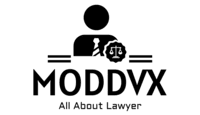Estate planning is an essential aspect of financial management that often gets overlooked until it’s too late. It involves making critical decisions about how your wealth, property, and possessions will be managed and distributed upon your passing. While this process may seem daunting, enlisting the expertise of a family lawyer can simplify the complexities and provide peace of mind for you and your family.
Understanding the Importance of Estate Planning:
Estate planning is not solely reserved for the affluent. Regardless of the size of your estate, having a comprehensive plan in place is crucial. It helps prevent disputes among family members, minimizes tax liabilities, and ensures that your assets are distributed according to your wishes. Without proper planning, your estate’s fate may be left to the discretion of state laws and probate courts, potentially leading to unnecessary delays and expenses for your heirs.
The Role of a Family Lawyer:
A family lawyer specializing in estate planning serves as your guide through the intricacies of estate law. They possess the knowledge and experience to help you navigate the legal landscape, ensuring that your estate plan aligns with your goals and objectives. From drafting wills and trusts to establishing powers of attorney and healthcare directives, a family lawyer plays a pivotal role in safeguarding your legacy.
Key Considerations in Estate Planning:
When collaborating with a family lawyer, several crucial factors merit consideration:
- Comprehensive Asset Inventory: Take stock of all your assets, including real estate, investments, bank accounts, retirement accounts, and valuable possessions.
- Thoughtful Beneficiary Designations: Clearly designate who will inherit your assets and how they will be distributed, taking into account any special circumstances or needs of your beneficiaries.
- Guardianship Arrangements: If you have minor children, appoint a guardian to care for them in the event of your incapacitation or demise.
- Tax Planning Strategies: Explore avenues to minimize estate taxes and maximize the value of your assets for your beneficiaries.
- Healthcare Directives: Specify your wishes regarding medical treatment and end-of-life care through healthcare directives and living wills.
- Trust Structures: Consider establishing trusts to protect assets, provide for minor beneficiaries, or support charitable endeavors.
- Regular Reviews and Updates: Periodically review and update your estate plan to reflect any changes in your financial situation, family dynamics, or estate laws.
Benefits of Professional Guidance:
While there are DIY estate planning tools available, they often lack the nuance and sophistication necessary to address your unique circumstances. Working with a family lawyer offers numerous benefits, including:
- Customized Solutions: A family lawyer can tailor your estate plan to suit your individual needs and objectives, ensuring that no detail is overlooked.
- Legal Expertise: Estate planning involves navigating a complex web of laws and regulations. A family lawyer possesses the legal acumen to interpret these laws and guide you accordingly.
- Peace of Mind: Knowing that your estate affairs are in order provides invaluable peace of mind for you and your loved ones, allowing you to focus on enjoying life to the fullest.
- Probate Avoidance: Proper estate planning can help your heirs avoid the probate process, which can be time-consuming and costly.
- Family Harmony: By clearly outlining your wishes and intentions, you can minimize the potential for conflicts and disputes among family members.
FAQS
- Why do I need estate planning?
Estate planning is essential for anyone who wants to have control over how their assets are distributed after they pass away. Without a proper estate plan in place, your assets may be subject to probate and distributed according to state laws, which may not align with your wishes.
- What is the role of a family lawyer in estate planning?
A family lawyer specializing in estate planning helps individuals and families create comprehensive plans to manage and distribute their assets. They provide legal expertise and guidance to ensure that your estate plan is legally sound and tailored to your unique circumstances.
- What documents are included in an estate plan?
An estate plan typically includes a will, which specifies how your assets will be distributed, and may also include trusts, powers of attorney, healthcare directives, and guardianship designations for minor children.
- Do I need a family lawyer for estate planning, or can I do it myself?
While it is possible to create a basic estate plan using DIY tools or online templates, working with a family lawyer offers numerous advantages. A lawyer can provide personalized guidance, ensure that your estate plan complies with state laws, and address any complex legal issues that may arise.
- How often should I update my estate plan?
It is recommended to review and update your estate plan regularly, especially after major life events such as marriage, divorce, the birth of a child, or a significant change in financial circumstances. A family lawyer can help you assess when updates are necessary.
- What happens if I die without an estate plan?
If you die without an estate plan, your assets will be distributed according to state laws of intestacy, which may not align with your wishes. Your estate may also be subject to probate, which can be time-consuming and expensive for your heirs.
- Can estate planning help minimize taxes?
Yes, estate planning can include strategies to minimize estate taxes and maximize the value of your assets for your beneficiaries. A family lawyer can help you explore options such as gifting, establishing trusts, and taking advantage of tax exemptions and deductions.
- How can I choose the right family lawyer for estate planning?
When selecting a family lawyer for estate planning, consider their experience, expertise, and reputation in the field. It’s also important to choose someone with whom you feel comfortable discussing your personal and financial matters. Many lawyers offer initial consultations to discuss your needs and assess whether they are a good fit for you.
Conclusion
Estate planning is a critical component of financial planning that should not be overlooked. By enlisting the assistance of a knowledgeable family lawyer, you can create a comprehensive estate plan that protects your assets and ensures your legacy endures for generations to come.


